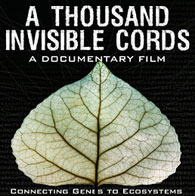About
The Cottonwood Ecology Group, established in 1979, is an interdisciplinary research team composed of scientists from University of California, Merced; University of Tennessee, Knoxville; University of Wisconsin-Madison; West Virginia University; Northern Arizona University; and other institutions. The group brings together researchers with diverse areas of expertise that range from molecular genetics to ecosystem modeling with organisms ranging from microbes to insects and mammals.
As its name suggests, the group focuses its research on cottonwood trees. Cottonwood is a disproportionately important species, or “foundation species,” of world’s rapidly vanishing stream-side habitats. Foundation species are especially important to study because they largely define a much larger community of understory plants, insects, microbes, birds, and mammals. By focusing on foundation species, scientists can more quickly understand how a community of hundreds of species would react to disturbances such as climate change.
The foundational research used common gardens to develop a community-level understanding of the consequences of plant genetics. Cottonwoods with slightly different genetic makeups supported different communities of organisms and ecosystem processes. These differences among trees resulted in genetics-based chemical defenses and other traits that affected about a thousand species of organisms that depend on cottonwood trees.
In late 2004, the Cottonwood Ecology Group received a $5 million grant from the National Science Foundation to examine how genetic differences in individual cottonwood trees influence the community structure, biodiversity, and ecosystem processes. One of the group’s basic findings is that the genetics of individual trees plays an important role in defining a large community of organisms and ecosystem processes such as decomposition and nutrient cycling. This work has contributed to the field of community genetics by linking genes to ecosystems.
The group’s work is featured in a 2012 award-winning eco-documentary, A Thousand Invisible Cords: Connecting Genes to Ecosystems.
